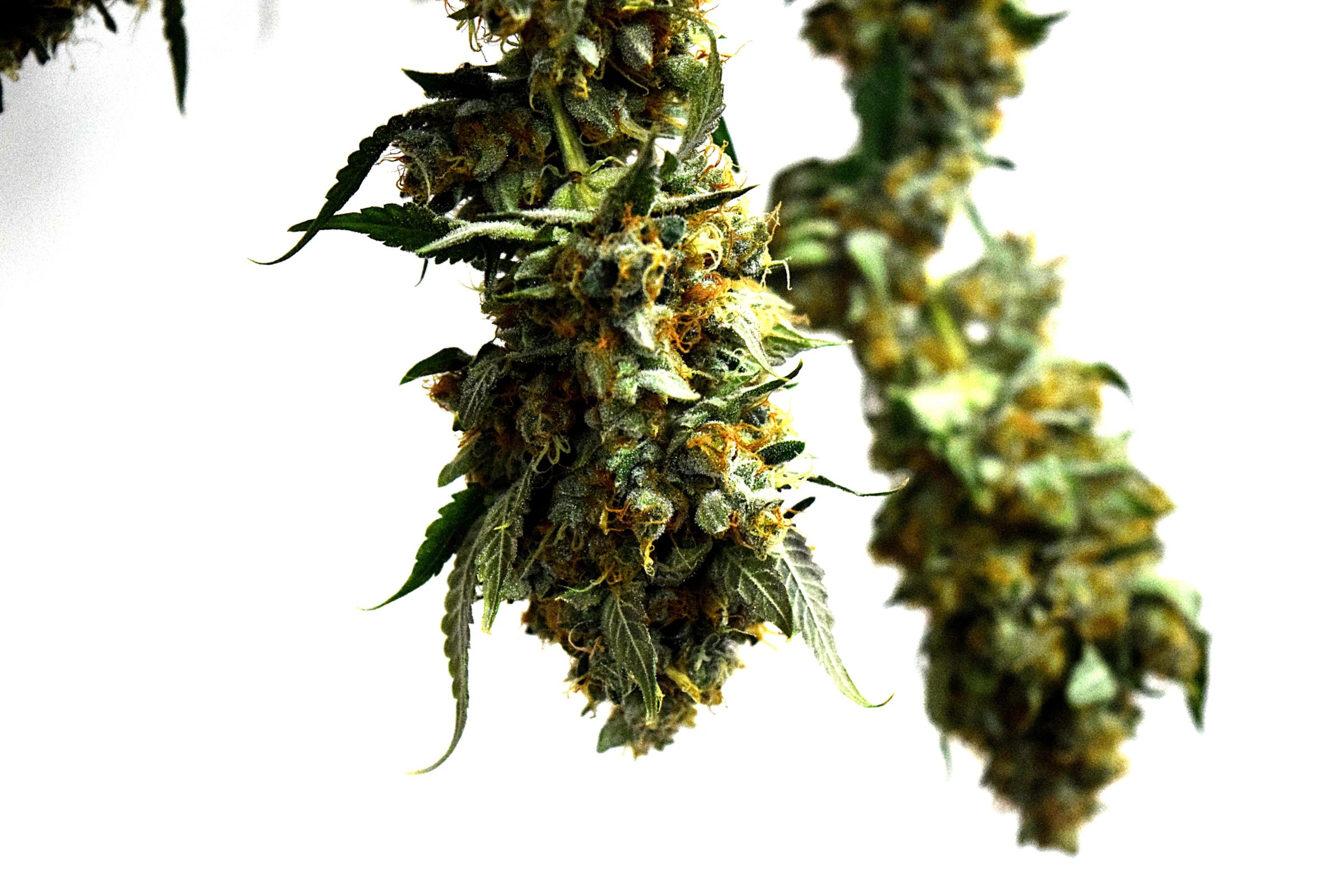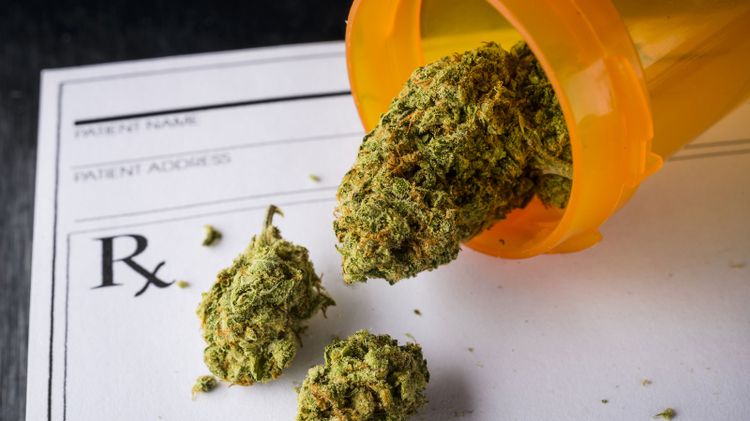
THC, the main psychoactive ingredient in cannabis, is what we call "THC".
THC is the main psychoactive compound in cannabis. It attaches to cannabinoid neuronal receptors in brain and nervous systems, which triggers high feelings. THC lasts longer in the body than most drugs, although its psychoactive effects are only temporary. You can consume it orally via oils, edibles, and sublingual dissolvable stripe.
THC is present in marijuana in different amounts. Some strains contain as little as 0.3 percent THC, while others contain 20 percent or more. According to the National Highway Traffic Safety Administration the average THC concentration of marijuana, hashish, & hashishoil is between 1 and 5. Although the amount of THC found in recreational marijuana varies from one strain to the next, it is generally the same. However, the higher the THC content, you will need more to achieve the desired effects.
It can be detected as soon as the impairment has subsided in a person’s breath.
THC can be detected in the breath of a person up to one month after impairment has ended. The drug is still present in the body for up to two to three hours after consumption. Therefore, breath samples can be tested even after impairment has ended. Because of this, law enforcement has been working to develop new impaired driving detection tools.

THC can be detected by a Breathalyzer and this can indicate that someone is under the influence of marijuana. However, this does not necessarily indicate that the person was driving under the influence. In addition, marijuana can be detected in a person's blood even months after impairment has ceased.
Cost
The arrest process will be revolutionized by a breathalyzer for marijuana, especially in states with zero tolerance like California where driving while impaired is illegal. The police will usually ask the suspect whether they want to perform a driving or drug-related skill test. This technology can save law enforcement money by eliminating these processes and reducing arrests.
However, these vaporizers are not inexpensive. They can cost upwards of $5,000 for both a single cartridge and an entire unit. This is similar to the price of breathalyzers for alcohol, which cost anywhere from $60 to $1000. However, there are some devices that cost as little as $15 per cart.
Legality
A prototype for a marijuana breathalyzer is being developed by several companies and scientific research groups. The technology has the potential to detect THC, which is the psychoactive component of cannabis. However, it is still in its infancy. However, there are several legal problems associated with this device. First of all, its accuracy is questionable because it is unable to detect small amounts of THC.

The National Institute of Standards and Technology (NIST) is currently developing standards for a marijuana DUI test. It is hoped the marijuana breathalyzer will become available to the public early next year. While the marijuana breathalyzer is still in development, we recommend that users not drive after taking it.
Regulation
A new breathalyzer for marijuana could help regulate the use of the drug on public roads. It could pose a problem for law enforcement. First, marijuana can stay in your body longer than alcohol so it is possible for users to test higher than other drivers. Furthermore, THC is stored in fat cells, making it more difficult to determine legal limits of impairment.
Another challenge is the development of a breathalyzer that can detect recent marijuana use without compromising its accuracy. Because cannabis remains in your body after the "high", it is challenging to make this work. Fortunately, several startups are developing breathalyzers for weed regulation.
FAQ
Can CBD be a part of the future?
The answer is yes. The answer is no, not because of its medicinal benefits, but because it helps people feel better without getting high.
People who want an alternative to prescription medications will love the fact that you don't feel any different after you use it.
Studies have shown that cannabis is effective in relieving pain, anxiety, depression and insomnia.
Cannabinoids found in cannabis also interact with the receptors in our brains. This interaction creates feelings of relaxation and well being.
Cannabidiol (CBD), oil can be used for health purposes. It's therefore important to fully understand its functions and effects.
What is the difference in CBD prices between states?
Prices for CBD products will vary depending on where they are located. Prices can vary up to ten times, in fact.
The general rule of thumb is that prices rise the farther north you travel. CBD is expensive in Alaska on average at $35 per gram. It costs in Hawaii around $200 pergram.
This trend is continuing across the country. Prices range from $5 to over $2,500 per gram.
This is what's the deal?
Variable levels of regulation can explain why prices differ so greatly. Some states require that CBD products have very low levels of THC (the psychoactive part of marijuana). Other states don't care what level of THC is present.
Some companies may choose to sell their products first in one state before shipping them to another.
What CBD products are the most popular?
CBD products are becoming increasingly popular. These products are being used to treat everything, from anxiety to pain relief. The market is big and growing fast.
But what are people buying CBD oil for? How does this impact you as a brand manager?
According to Statista CBD products are purchased for their relaxing properties. They can also be used to treat inflammation.
If your product contains both CBD and THC, it can be used for medicinal and recreational purposes.
But what about brands who are focused on one purpose only? One example is CBD for stress relief.
In addition, if a brand focuses on CBD for medical purposes, then it will have a large customer base.
A brand must have a unique selling proposition (USP) if they want to appeal to recreational users. A USP can be described as a unique selling proposition (USP) that is unique to a brand.
For example, some brands offer free shipping, while others offer discounts for bulk orders.
How big is global CBD market size?
According to Euromonitor International, the global CBD market was worth $US 3.5 Billion in 2015. This is more than 10% higher than 2014
This figure is expected to grow at an average rate of 12% by 2020.
CBD products will make up around half of all products derived from hemp by 2020.
This includes CBD oils.
What are the most popular CBD brands?
We've handpicked these top five CBD brands based on quality, reliability, and value.
They offer CBD oil products that are high-quality and less than 0.2% of THC.
We also recommend checking out our list of the best CBD sellers worldwide.
What are the best uses for CBD?
CBD can be used as an alternative to anxiety treatment. It can also be used for pain relief, epilepsy treatment, inflammation, depression and other conditions.
CBD can be taken in many forms. CBD can be consumed in many ways.
CBD has many health benefits. CBD has been shown to be beneficial for people with chronic pain, anxiety, PTSD, and other conditions.
How can CBD products be successfully promoted by companies in a regulatory-compliant way?
The FDA does no regulate hemp as a crop commodity. The Controlled Substances Act regulates all cannabis derivatives, including marijuana. CBD has yet to be subject to specific regulations.
CBD is legal in 29 states. However, federal law still considers CBD illegal. This uncertainty creates uncertainty for CBD product sellers.
The FDA also sets strict guidelines about how CBD products are promoted. For example, they must clearly disclose any product's THC content. Without supporting scientific evidence, CBD cannot be claimed to treat certain medical conditions.
In addition, the FDA requires manufacturers to submit detailed information regarding manufacturing practices and quality control measures. To prove safety and effectiveness, they require that companies conduct clinical trials.
When developing their own marketing strategies, companies should take into account these points.
Statistics
- A recent study [161] also found that in vitro CBD treatment (i.e., ≤ 2 h exposure to 10 μM) induced ~40% vasorelaxation in isolated (pre-constricted) (ncbi.nlm.nih.gov)
- CBD seems unlikely to directly influence sleep in healthy humans [115] (and maybe “sleep-promoting” in those with certain comorbid conditions) (ncbi.nlm.nih.gov)
- however, one study also found that these effects were virtually abolished when the original media (a nutrient broth agar) was replaced with one containing 5% blood (increasing the minimum concentration to ~160 μM CBD) [179]. (ncbi.nlm.nih.gov)
- As a substance that was federally illegal before the passage of the 2018 Farm Bill, hemp-derived cannabinoids with no more than 0.3% THC still face a regulatory grey area. (forbes.com)
- OralWhere HED is the human equivalent dose, and Km is a correction factor estimated by dividing the average body mass (BM) of the species (60, 0.020, and 0.150 kg for 11 humans, mice, and rats, respectively) and by its surface area (see: Nair et al. (ncbi.nlm.nih.gov)
External Links
How To
How to get certified for selling CBD products
CBD (cannabidiol) is one of the hundreds of cannabinoids found in cannabis plants. It has been used medicinally since ancient times, including in traditional China, India, and many South American nations. Because it can treat conditions such as anxiety, pain, epilepsy and inflammation, CBD has seen a rise in popularity over the years. There is no formal certification program for CBD products. At least, not in the U.S. Anyone who wants to sell CBD products will have to use the "unofficial", self-certification process.
You have two options. The first option is to join a canna business association. This way, you can learn from others while getting support and advice. There are many organizations in the United States. You can also go online and start your own business. Canna-businesses can now operate online in many states. If this is the case, then you can establish your own website immediately and start accepting orders. You must register with the Department of Public Health in your state. Once you have registered, it will be possible to apply for your license through the state's department public health. Once you have your license, it is legal to open your shop and accept orders.